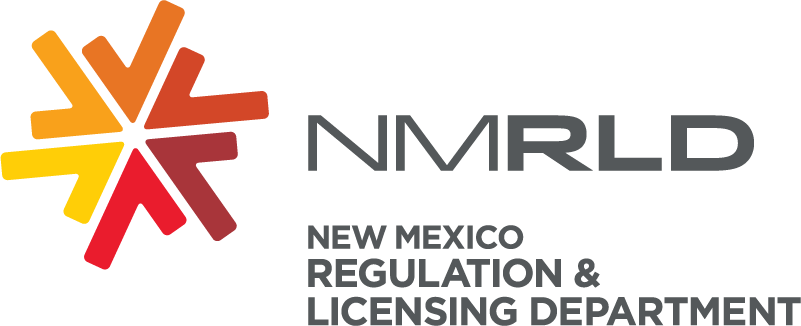Instructors, Training Requirements, and Continuing Education
- Home
- Boards and Commissions
- Individual Boards and Commissions
- Counseling and Therapy Practice
- Instructors, Training Requirements, and Continuing Education
Explore Section
Counseling and Therapy Practice: Instructors, Training Requirements, and Continuing Education
You must have an active license to practice in New Mexico.
To renew licenses for the next licensure renewal period, all registered and licensed professionals will be required to submit proof of 40 hours of continuing education which must have been acquired from October 1 of renewal year through September 30 of expiration year, which is a 2-year period. There are no longer requirements on how to get Continuing Education Units (CEUs); licensees may obtain them however they would like. All licensees must obtain 12 CEU hours of ethics.
Independent licensed professionals who want to provide supervision must apply for the Approved Clinical Supervisor Designation. Application, fee, and proof of 9 required CEUs, 3 hours specific to counseling and therapy supervision and 6 specific to ethics in supervision, must be mailed in to the board.
Renewal notices will go out August 16. If you have a change of email or address, you must request a change through our online licensing portal NM-PLUS.
More information about CEUs
16.27.16.9 Acceptable Continuing Education Courses
A. approved by local, state, national, or international mental health-related professional associations such as the National Board for Certified Counselors, the American Marriage and Family Therapy Regulatory Board, American Art Therapy Association, Art Therapy Credentials Board, International Certification Reciprocity Consortium, or the National Association of Alcohol and Drug Abuse Council;
B. approved by other state regulatory boards of related mental health or substance abuse fields, including psychiatry, psychology, and social work;
C. sponsored by international, national, regional, or state mental health professional associations including psychiatry, psychology, and social work, or state and federal divisions of substance abuse;
D. approved by the New Mexico Counseling and Therapy Practice Board;
E. college coursework will be accepted for continuing education as follows:
- (1) Semester hour for the purpose of calculating continuing education units means that one semester credit hour of graduate coursework is equal to 15 continuing education units and one quarter hour of coursework is equal to 11.25 continuing education units;
- (2) License types requiring a master’s degree or higher may utilize only graduate or postgraduate-level coursework beyond their initial master’s degree that is related to counseling and therapy. Undergraduate coursework is not acceptable toward continuing education requirements;
- (3) License types requiring an associate’s degree or higher can utilize undergraduate coursework taken as part of a bachelor’s degree program that is related to counseling and therapy or substance use disorders. If the licensee possesses a bachelor’s degree, the licensee can only utilize graduate and postgraduate-level coursework toward continuing education requirements for license renewal.
F. Pro bono work shall be accepted for up to 20 continuing education credits during each renewal cycle. Such work shall be non-remunerated clinical in nature and performed only by independently licensed clinicians. To qualify for continuing education hours, work must be performed for a nonprofit organization or government entity by which the clinician is not currently employed, or otherwise associated. Service sites shall be engaged in provision of substantial service to their community and the people of New Mexico. Continuing education hours shall be awarded on the basis of 1 continuing education credit hour per 4 clock hours of service. Clinicians will be supervised by site-based administrative staff and documented on service hour continuing education worksheet and documentation form available from the New Mexico Counseling and Therapy Practice Board.
[16.27.16.9 NMAC – Rp, 16.27.16.9 NMAC, 11/30/2021]
CEU Tally Sheet, 2025 renewal
CEU Tally Sheet 2026 Renewal
Late Renewal Penalty/Retirement Status/Inactive Status
Late Renewal Penalty: $100 plus renewal fee for incomplete renewals or renewals submitted after September 30.
If your license is not renewed within 30 days of the expiration date, October 31, it will automatically expire and you must refrain from practicing. You will need to reapply to obtain a new license.
Retirement Status: To place your license on retirement status, you must select “Request Status Change” under Action next to your license in the online portal. Request for retirement must be made on or before your license expiration date. Retirement status is not to be used for the purpose of not completing your renewal requirements. After five years of retirement status, the licensee has the option to place a license on inactive status or reinstate a license. Failure to request inactive status or retirement status will cause the license to expire.
As stated in Part 3, section 11, a retired license may be restored within five years of being placed on retirement status by notifying the board in writing, providing the board with proof of having completed 40 hours of continuing education during the retirement period, and paying $100 reinstatement fee plus the licensure fee. Contact Counseling.board@rld.nm.gov to reactivate.
Inactive Status: To place your license on inactive status, you must select “Request Status Change” under Action next to your license in the online portal. Request for inactive must be made on or before your license expiration date. inactive status is not to be used for the purpose of not completing your renewal requirements. there is a $100.00 fee for inactive status, but no CEU requirement. The inactive status must be renewed every two years. A license can remain inactive indefinitley. Failure to request inactive status or retirement status will cause the license to expire.
Board Best Practices
Download the Supervision Best Practices Sheet
Download the Telehealth Best Practices Sheet
